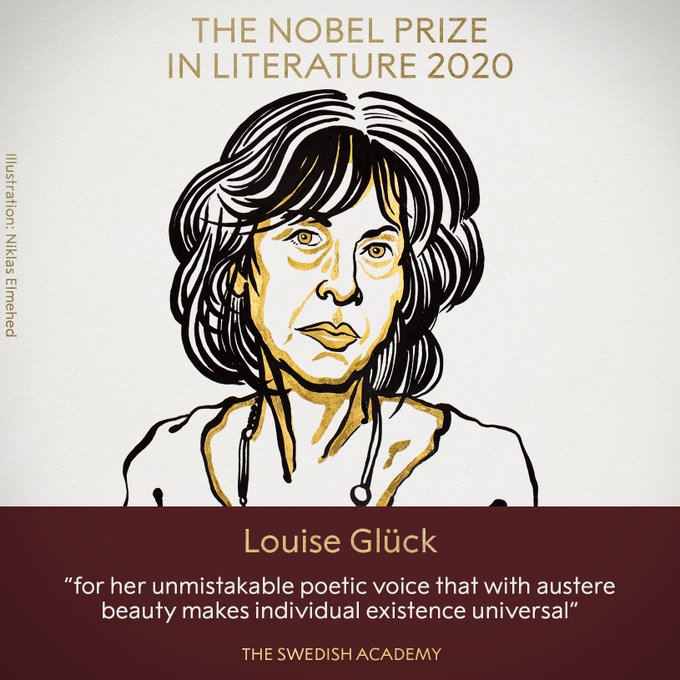
Louise Glück, Nobel lecture
"When I was a small child of, I think, about five or six, I staged a competition in my head, a contest to decide the greatest poem in the world. There were two finalists: Blake’s “The Little Black Boy” and Stephen Foster’s “Swanee River.” I paced up and down the second bedroom in my grandmother’s house in Cedarhurst, a village on the south shore of Long Island, reciting, in my head as I preferred, not from my mouth, Blake’s unforgettable poem, and singing, also in my head, the haunting, desolate Foster song. How I came to have read Blake is a mystery. I think there were a few poetry anthologies in my parents’ house among the more common books on politics and history and the many novels. But I associate Blake with my grandmother’s house. My grandmother was not a bookish woman. But there was Blake, The Songs of Innocence and of Experience, and also a tiny book of the songs from Shakespeare’s plays, many of which I memorized. I particularly loved the song from Cymbeline, understanding probably not a word but hearing the tone, the cadences, the ringing imperatives, thrilling to a very timid, fearful child. “And renownèd be thy grave.” I hoped so.
Those of us who write books presumably wish to reach many. But some poets do not see reaching many in spatial terms, as in the filled auditorium. They see reaching many temporally, sequentially, many over time, into the future, but in some profound way these readers always come singly, one by one.
I believe that in awarding me this prize, the Swedish Academy is choosing to honor the intimate, private voice, which public utterance can sometimes augment or extend, but never replace […]."
Lire le texte complet en ligne ou le télécharger en format PDF…
Lire la traduction française par Cécile A. Holdban et Thierry Gillybœuf sur le site larepubliquedeslivres.com…
*
© THE NOBEL FOUNDATION 2020
General permission is granted for the publication in newspapers in any language after December 7, 2020, 5:00 p.m. CET.
Publication in periodicals or books otherwise than in summary requires the consent of the Foundation. On all publications in full or in major parts the above underlined copyright notice must be applied.